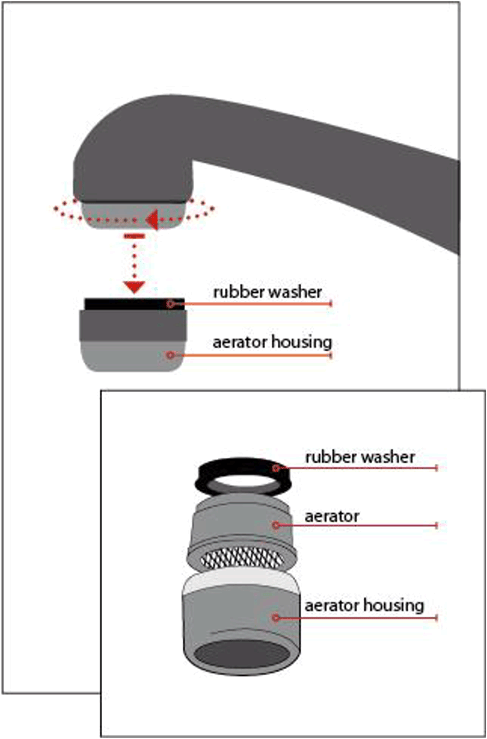
 Environmental Protection311
Environmental Protection311 Search all NYC.gov websites
Search all NYC.gov websites
Monitoring for Lead
New York City water is virtually lead-free when it is delivered from the City’s upstate reservoir system, but water can absorb lead from solder, fixtures, and pipes found in the plumbing of some buildings or homes. It is possible that this can increase your potential for exposure. For answers to commonly asked questions:
For information about lead testing results in New York City Public Schools, visit the NYC Department of Education website.
Lead in Drinking Water
We have detected lead in the drinking water at some homes that have:
- lead service lines or “pipes” (homes built before 1961 may have lead pipes—view the Water Service Line Map to see whether your building might have lead pipes)
- internal fixtures and plumbing that contain lead, or
- internal plumbing joined by lead solder (plumbing installed before 1987 may contain lead solder).
Sources of Lead
Lead is a common metal that was historically used in paint, plumbing pipes, faucets, and other products. It can be found in household dust and soil, as well as some imported consumer products like clay pottery, cosmetics, food and toys. Lead is rarely found in rivers and lakes and tests show the water from New York City’s upstate reservoirs and the water distribution system is virtually lead-free.
The presence of lead in New York City drinking water is caused by corrosion, a reaction between the water and the metallic pipes or solder. When water comes in contact with plumbing that contains lead, the lead can be absorbed into the water. Although this can happen at any time, higher concentrations of lead may be found when the water has not be used for several hours, such as first thing in the morning, or late in the afternoon after getting home from work or school. You can minimize the potential for lead exposure by running your tap for 30 seconds or until the water gets noticeably colder before using water for drinking or cooking.
Although regulations have been put in place to reduce the lead in plumbing, your residence may still contain pipes, solder and fixtures that contain some lead if they were installed before these rules came into effect. Even new faucets, fittings, and valves, including those advertised as “lead-free,” may contribute lead to drinking water. Under current federal law “lead-free” plumbing components can still have up to 0.25% lead in the surface touching the water. Prior to 2014, “lead free” fixtures could have up to 8% lead. Consumers should be aware of this when choosing fixtures and take appropriate precautions.
How the City Reduces the Risks of Lead in Drinking Water
Before your drinking water goes into the City’s distribution system, we carefully adjust the pH levels of the water to a specific range to lessen the corrosive nature of the water. We also add phosphoric acid—a common food preservative—that forms a protective film on household plumbing as the water passes through your pipes. These steps minimize the amount of lead that dissolves into water, especially in private homes with lead pipes, fixtures or solder.
We also perform water quality monitoring throughout the City every day to make sure we continue to deliver the healthy, great tasting water that New Yorkers expect. We monitor New York City’s drinking water for approximately 250 contaminants, approximately 100 of which are not currently required by regulations, and conduct more than 600,000 water quality tests each year.
For more information, visit Lead in Household Plumbing FAQs.
Additional Resources
- Visit NYC Department of Education Water Safety for information on and lead testing results in public schools
- Visit Lead Poisoning for lead poisoning prevention information from the New York City Department of Health and Mental Hygiene
- Visit Lead in Drinking Water from the Centers for Disease Control and Prevention
- Visit Lead in Drinking Water from the New York State Department of Health
- Visit Basic Information About Lead in Drinking Water, call the Safe Drinking Water Hotline (800-426-4791), or visit Lead from the U.S. Environmental Protection Agency
- For information about lead filters, visit Lead in Drinking Water from the National Santitation Foundation
Tips to Reduce Your Exposure to Lead in Drinking Water

Run Your Tap Until it’s Cold
Run your tap for at least 30 seconds, until the water is noticeably colder, before using it for drinking, cooking or making baby formula any time the water in a faucet has stood for several hours.
Use Cold Tap Water for Drinking, Cooking and Making Baby Formula
Never use hot tap water for drinking, cooking or making baby formula and baby cereal. Lead can dissolve more easily in hot tap water.
Clean Your Faucet Screens
Sometimes lead and sediment can build up on the individual screens at your faucets. To clean them, periodically take off the faucet strainers from all taps and run the water for 3 to 5 minutes.
Lead in Drinking Water Test Kit
To request a free lead test kit, call 311 or fill in this online form.
If you have already received your lead test kit in the mail, visit Lead in Drinking Water Test Kit for step-by-step sampling instructions (available in multiple languages) and an instructional how-to video.
Lead Service Line Replacement Program
Visit Lead Service Line Replacement Program to learn more and determine if your property is eligible.


